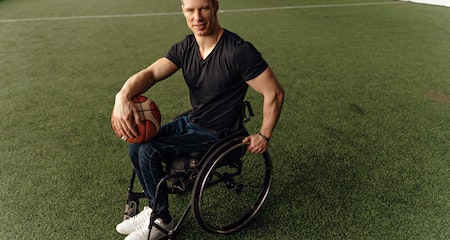You understand the importance of providing the best care for disabled people if you are responsible for their care. This will help your loved one have a happier and healthier life.
Many clinics and health plans have programs that cater to people with disabilities. These programs share key features such as ensuring accessible care, proactively identifying and treating secondary conditions and engaging patients.
Patience
Being patient is the name of the game when you are assisting someone with a disability. It is the key to helping them navigate their home or facility.
Patience is the hallmark of a good caregiver and should be displayed with every visit to ensure a positive experience for everyone involved.
Having patience in your back pocket will help you avoid the common pitfalls that can cause stress and burnout. This is especially true when you are dealing with a difficult client or student that requires a lot of your time and attention.
Understanding
People with disabilities have a wide range of needs, ranging from physical to mental. Understanding these needs is important in order to help people with disabilities live the best possible life.
In addition to understanding the specific disability, be sure to understand the person’s strengths and weaknesses. You’ll be able to give them better care, and you will avoid making mistakes or misunderstandings.
This is especially important to people with intellectual or developmental disabilities. They may need assistance with daily activities such as banking, cooking, and social situations. They may also require assistance with jobs and health care visits.disability organisations melbourne
Communication
Communication is key to providing the best care for people with disabilities. It involves understanding the language, tone, body postures and gestures of the receiver to communicate useful information.
This requires a good relationship between clinician and patient. Staff should be taught how to communicate clearly and respectfully with patients.

This can be done through a variety of techniques including speech-language therapy and occupational therapy. Augmentative and alternative communication (AAC) can also be helpful.
Empathy
One of the most important components of best care for disabled people is empathy. Empathy allows caregivers to put themselves in the shoes of their clients and understand their needs. This allows them to respond compassionately.
It also makes it easier for them to connect with their clients and build trust and respect.
It is not always easy to be compassionate.
This is because we may have a difficult time connecting with people who don’t share our same background or experiences.
For this reason, caregivers need to make sure they are able to give their patients the care they deserve. They can do this by encouraging empathy in their staff, as well as in the community, and providing the best environment for their clients to flourish.
Participation
Involvement is crucial for the best care for disabled people. Having the patients involved in their own health care will help them to become more self-directed and independent.
Asking the patient questions about their disability is one way to get involved. This will ensure they receive the best possible care and give you confidence to communicate effectively with them.
Many clinics and health plans have tailored their services to accommodate the needs of people with disabilities. They share key characteristics such as ensuring accessibility to care, proactively diagnosing and treating secondary conditions and engaging and building trust among patients. They also integrate long-term support services and services to improve health, promote independence, and social inclusion.
What is Respite Care?
Taking care of someone who has a disability or illness can be a 24-hour job, so caregivers often need a break to look after themselves. Respite care provides a short-term solution to that problem, allowing primary caregivers to take a break from their duties without sacrificing the important role they play as family members.
Respite care can be used by caregivers for a few hours or a day, or even a week. They can also arrange a longer-term option that may last for several weeks or even months.
As a result, caregivers can relieve stress, restore their energy and promote balance in their lives. They can also prevent caregiver burnout or isolation.
Respite care can be delivered at home or in a nursing facility, and it costs on average $25 per hour. Part of the cost may be covered by Medicare or Medicaid.
What is Social Security Disability?
Social Security Disability (SSD), the federal government’s program to provide personal disability support and care for those who are unable to work because of a disability, is available. SSDI benefits replace approximately half of a median beneficiary’s past earnings.
To be eligible for SSDI, you must meet our strict definition of disability. We pay for your total disability, unlike other programs.
SSA also requires you to have worked for Social Security work credits for a long time and in a recent enough amount of time. These work credits are based on your yearly wages or self-employment income, and you can earn up to 4 credits per year.
If you can work again, SSA has special rules called “work incentives.” These allow you to keep your SSDI benefits while trying out a new job. However, you should plan ahead to avoid losing your benefits.






















